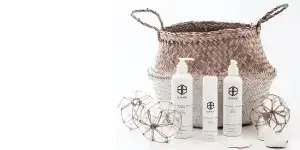In the ever-evolving landscape of beauty and personal care, Gently Soap has emerged as a standout product, capturing the attention of consumers and businesses alike. As we navigate through 2025, the demand for Gently Soap continues to soar, driven by a combination of social media trends, consumer preferences, and broader industry movements. This guide delves into the essence of Gently Soap, exploring its market potential and the factors contributing to its rising popularity.
Table of Contents:
– Understanding Gently Soap and Its Market Potential
– Exploring Popular Types of Gently Soap
– Addressing Consumer Pain Points with Gently Soap
– Innovations and New Products in the Gently Soap Market
– Key Considerations for Sourcing Gently Soap
– Wrapping Up: The Future of Gently Soap in the Beauty Industry
Understanding Gently Soap and Its Market Potential
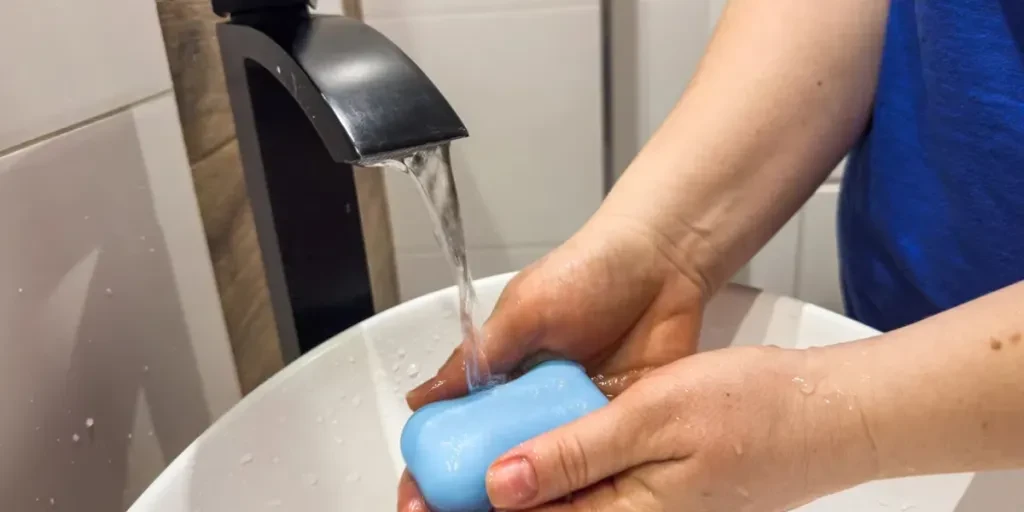
What is Gently Soap and Why It’s Gaining Popularity
Gently Soap, characterized by its mild and skin-friendly formulation, has become a favorite among consumers seeking gentle yet effective cleansing solutions. Unlike traditional soaps that may contain harsh chemicals, Gently Soap is often enriched with natural ingredients, essential oils, and vitamins, catering to a wide range of skin types and concerns. This product’s appeal lies in its ability to cleanse without stripping the skin of its natural moisture, making it ideal for individuals with sensitive skin or those who prefer a more natural approach to skincare.
The market potential for Gently Soap is significant, with the global bar soap market projected to grow from USD 35.37 billion in 2024 to USD 46.64 billion by 2030, at a CAGR of 4.69%. This growth is fueled by increasing consumer awareness about personal hygiene and the benefits of natural and organic products. As more consumers prioritize health-conscious choices, the demand for Gently Soap is expected to rise, presenting lucrative opportunities for retailers and wholesalers in the beauty and personal care industry.
Social Media Trends and Hashtags Driving Demand
Social media platforms have played a pivotal role in amplifying the popularity of Gently Soap. Influencers and beauty enthusiasts frequently share their skincare routines and product recommendations, often highlighting the benefits of using gentle, natural soaps. Hashtags such as #GentleCleanse, #NaturalBeauty, and #SensitiveSkinSolutions have gained traction, creating a buzz around Gently Soap and driving consumer interest.
The power of social media extends beyond individual posts, as brands leverage these platforms to launch targeted marketing campaigns and engage with their audience. User-generated content, including reviews and testimonials, further boosts the credibility and appeal of Gently Soap. This digital word-of-mouth marketing has proven to be highly effective in influencing purchasing decisions, making social media an indispensable tool for brands looking to capitalize on the growing demand for Gently Soap.
Aligning with Broader Beauty and Personal Care Trends
The rise of Gently Soap is closely aligned with broader trends in the beauty and personal care industry. One of the most prominent trends is the shift towards natural and organic products. Consumers are increasingly wary of synthetic ingredients and are seeking products that are free from parabens, sulfates, and other harmful chemicals. Gently Soap, with its emphasis on natural formulations, fits seamlessly into this trend, offering a safe and effective alternative to conventional soaps.
Another key trend is the focus on sustainability and eco-friendly practices. Brands are adopting sustainable sourcing and packaging methods to reduce their environmental footprint, and Gently Soap is no exception. Many Gently Soap products are packaged in biodegradable or recyclable materials, appealing to eco-conscious consumers who prioritize sustainability in their purchasing decisions.
Furthermore, the wellness movement has influenced consumer preferences, with a growing emphasis on self-care and holistic health. Gently Soap, often infused with therapeutic ingredients like lavender, chamomile, and aloe vera, provides not only cleansing benefits but also a sensory experience that promotes relaxation and well-being. This alignment with the wellness trend enhances the appeal of Gently Soap, making it a sought-after product in the beauty and personal care market.
In conclusion, the rise of Gently Soap is a testament to the evolving consumer preferences and industry trends that prioritize natural, gentle, and sustainable products. As the demand for Gently Soap continues to grow, businesses in the beauty and personal care industry have a unique opportunity to tap into this market and cater to the needs of discerning consumers.
Exploring Popular Types of Gently Soap
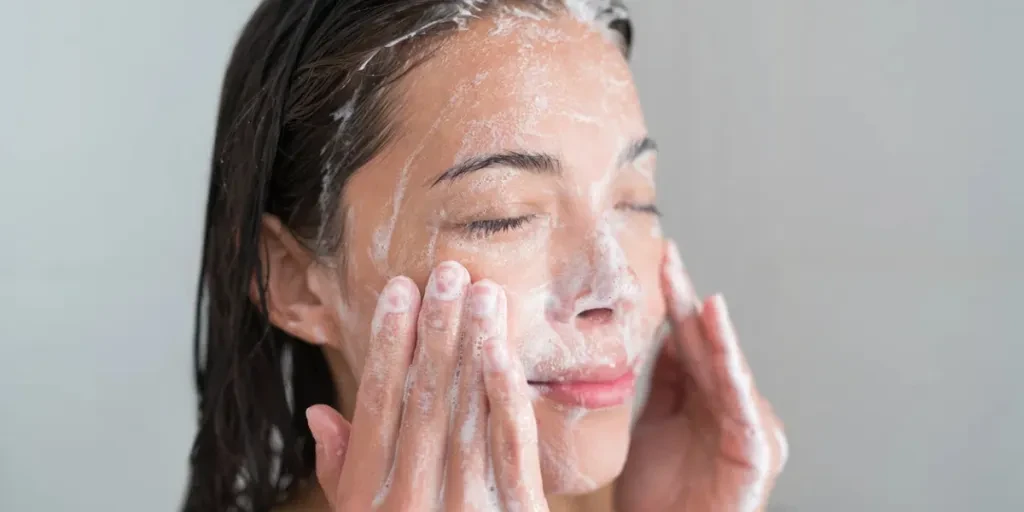
Natural and Organic Gently Soaps: Benefits and Drawbacks
Natural and organic gently soaps have gained significant traction in the beauty and personal care industry. These soaps are formulated with ingredients derived from nature, such as plant oils, essential oils, and botanical extracts. The primary benefit of natural and organic gently soaps is their minimal use of synthetic chemicals, which makes them suitable for sensitive skin. For instance, the Curie Body Wash Bars, which feature shea butter, coconut oil, and glycerin, are designed to leave the skin feeling soft and nourished without causing tightness after cleansing. This aligns with the growing consumer preference for clean beauty products that are free from harmful chemicals.
However, there are some drawbacks to consider. Natural and organic soaps may have a shorter shelf life due to the absence of synthetic preservatives. Additionally, the cost of sourcing high-quality natural ingredients can be higher, which may result in a higher price point for the end product. Business buyers need to weigh these factors when sourcing natural and organic gently soaps, ensuring that the benefits align with their target market’s preferences and willingness to pay a premium for such products.
Scented vs. Unscented: Consumer Preferences and Feedback
Consumer preferences for scented versus unscented gently soaps vary widely. Scented soaps, such as Dr. Squatch’s limited-edition soaps with mood-enhancing benefits, offer an aromatic experience that can enhance the user’s overall bathing routine. These soaps often incorporate essential oils and natural fragrances that provide a pleasant scent while also offering therapeutic benefits. For example, the Bliss Bricc soap from Dr. Squatch combines antioxidant-rich gamma amino actives with the aroma of black pepper, geranium, and earthy patchouli, creating a relaxing and rejuvenating experience.
On the other hand, unscented gently soaps cater to consumers with sensitive skin or allergies to fragrances. Products like Burt’s Bees®’s gentle face scrub, which is fragrance-free and dermatologist-tested, are designed to minimize the risk of irritation while still providing effective cleansing. Business buyers should consider offering both scented and unscented options to cater to a broader range of consumer preferences, ensuring that they meet the needs of those seeking both sensory experiences and hypoallergenic solutions.
Specialty Gently Soaps: Targeting Specific Skin Concerns
Specialty gently soaps are formulated to address specific skin concerns, such as acne, dryness, or eczema. For instance, the Epicutis® Oil Cleanser is designed for oily and acne-prone skin, using gentle oil ingredients like Meadowfoam Seed Oil and Sunflower Seed Oil to remove dirt and excess oil without stripping the skin’s natural moisture barrier. This product highlights the trend of using oil-based formulations to effectively cleanse and nourish the skin.
Another example is the Flexitol Sensitive Skin Wash, which is formulated to remove impurities without stripping the skin of its natural oils. This product is ideal for individuals with sensitive skin, as it is free from harsh chemicals and fragrances. Business buyers should consider sourcing specialty gently soaps that cater to specific skin concerns, as these products can attract a loyal customer base seeking targeted skincare solutions.
Addressing Consumer Pain Points with Gently Soap
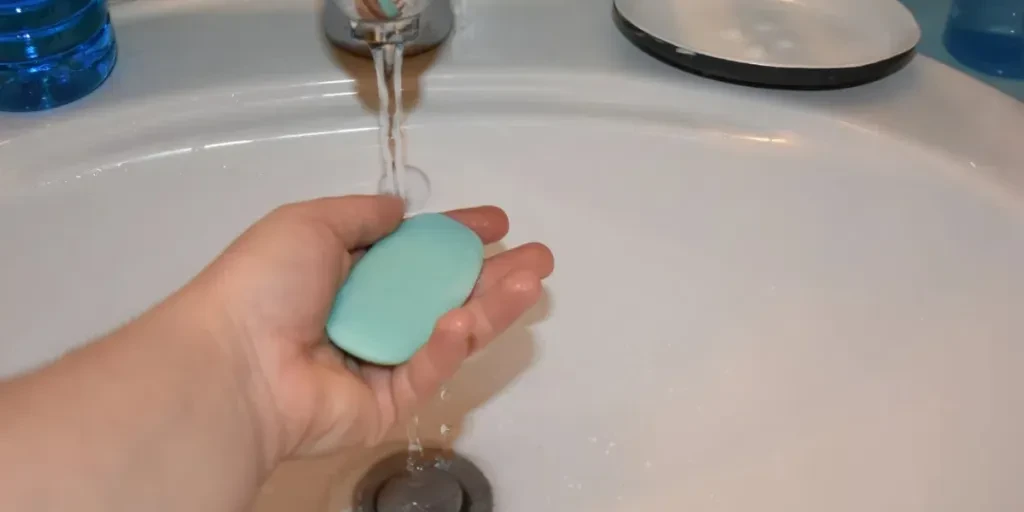
Common Skin Issues and How Gently Soap Provides Solutions
Common skin issues such as dryness, irritation, and acne can be effectively addressed with the right gently soap formulations. For example, the Soft Launch Hydrating Cream Cleanser from Bubble Skincare is designed for dry and sensitive skin, featuring ingredients like allantoin and avocado oil to soften and soothe the skin while maintaining its natural moisture barrier. This product demonstrates how gently soaps can provide hydration and nourishment, addressing the pain points of consumers with dry skin.
For acne-prone skin, products like the Peace Out Acne-Gel Cleanser, which contains salicylic acid and ceramides, offer a solution by exfoliating the skin and strengthening the skin barrier. These ingredients help reduce breakouts and improve skin texture, making the product suitable for individuals struggling with acne. Business buyers should prioritize sourcing gently soaps that address specific skin issues, as these products can provide effective solutions and build consumer trust.
Ingredient Transparency: Building Trust with Consumers
Ingredient transparency is crucial in building trust with consumers, especially in the beauty and personal care industry. Brands like Blendily, which offers single-ingredient soaps such as the Actually Avocado soap made from saponified avocado oil, provide a clear and straightforward ingredient list that appeals to ingredient-conscious consumers. This transparency helps consumers make informed decisions and fosters trust in the brand.
Business buyers should seek out suppliers that prioritize ingredient transparency and provide detailed information about the sourcing and formulation of their products. This approach not only builds consumer trust but also aligns with the growing demand for clean and natural beauty products. By offering products with transparent ingredient lists, business buyers can differentiate themselves in a competitive market and attract a loyal customer base.
Packaging and Sustainability: Meeting Eco-Friendly Demands
Sustainability is a key consideration for many consumers when choosing beauty and personal care products. Brands like Sans Savon, which offers non-foaming oil-based cleansers with sustainable packaging, are leading the way in meeting eco-friendly demands. The use of biodegradable materials, recyclable packaging, and refillable options are all strategies that can reduce the environmental impact of gently soaps.
Business buyers should prioritize sourcing products that align with sustainability goals, such as those with eco-friendly packaging and ethically sourced ingredients. This not only appeals to environmentally conscious consumers but also supports broader corporate social responsibility initiatives. By offering sustainable gently soaps, business buyers can enhance their brand reputation and contribute to a more sustainable future.
Innovations and New Products in the Gently Soap Market

Cutting-Edge Ingredients and Formulations
The gently soap market is continuously evolving with the introduction of cutting-edge ingredients and formulations. For instance, the E.Q. Gentle Cleanser by MARK Los Angeles incorporates anti-inflammatory ingredients like EGCG and Quercetin, along with squalane oil to support the skin’s moisture barrier. These innovative formulations provide effective cleansing while addressing specific skin concerns, such as inflammation and dryness.
Another example is the BRIXY Blend, which combines ceramides and niacinamide to support a healthy skin barrier and protect against environmental stress. This blend is used in BRIXY’s soap-free facial cleansers, offering a gentle and effective alternative to traditional liquid cleansers. Business buyers should stay informed about the latest ingredient innovations and consider incorporating these advanced formulations into their product offerings to meet the evolving needs of consumers.
Emerging Brands and Their Unique Offerings
Emerging brands are making a significant impact in the gently soap market by offering unique and innovative products. For example, Your Skin Stuff specializes in youth-safe skincare for pre-teens, providing gentle cleansers and moisturizers specifically formulated for young skin. This brand fills a gap in the market by catering to the skincare needs of Gen Alpha and the tail-end of Gen Z, offering products that are vegan, cruelty-free, and dermatologically tested.
Another emerging brand, Solluna, offers small batch natural cleansers like the Feel Good Cleanser, which uses plant-based ingredients to effectively cleanse and soothe the skin. These brands demonstrate the potential for innovation and differentiation in the gently soap market, providing business buyers with opportunities to source unique products that cater to specific consumer segments.
Technological Advancements in Soap Production
Technological advancements in soap production are driving innovation and efficiency in the gently soap market. For instance, the use of advanced manufacturing techniques allows for the creation of non-foaming oil-based cleansers, such as those offered by Sans Savon. These products maintain the skin’s natural protective barrier and microbiome, providing a gentle and effective cleansing experience.
Additionally, the development of sustainable packaging solutions, such as biodegradable materials and refillable options, is transforming the way gently soaps are produced and marketed. Business buyers should explore these technological advancements to enhance their product offerings and meet the growing demand for innovative and sustainable gently soaps.
Key Considerations for Sourcing Gently Soap
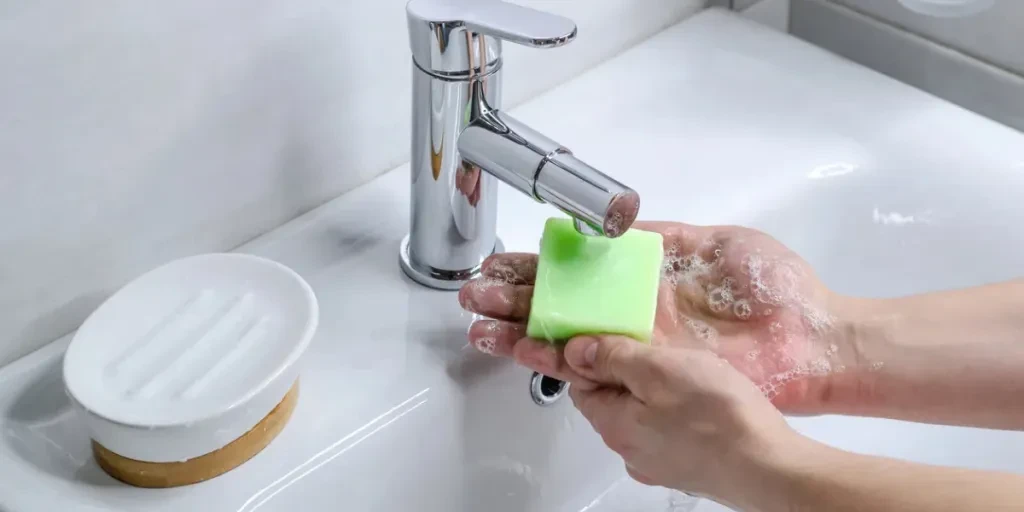
Quality Assurance and Certification Standards
Quality assurance and certification standards are critical factors for business buyers when sourcing gently soaps. Products that are dermatologically tested, cruelty-free, and certified by reputable organizations, such as The Vegan Society, provide assurance of their safety and efficacy. For example, the Body Shop’s Camomile Cleanser is certified by The Vegan Society and uses ingredients known for their soothing properties, such as chamomile water and aloe vera.
Business buyers should prioritize suppliers that adhere to strict quality assurance and certification standards, ensuring that the products meet regulatory requirements and consumer expectations. This approach not only enhances product credibility but also reduces the risk of adverse reactions and builds consumer trust.
Supplier Reliability and Ethical Practices
Supplier reliability and ethical practices are essential considerations for business buyers. Brands like Flexitol, which offers sensitive skin wash and lotion with naturally derived ingredients, demonstrate a commitment to ethical sourcing and production practices. These products are dermatologist-recommended and proven to increase hydration, making them suitable for all skin types.
Business buyers should conduct thorough due diligence on potential suppliers, assessing their reliability, ethical practices, and commitment to sustainability. This includes evaluating their sourcing practices, labor conditions, and environmental impact. By partnering with reputable suppliers, business buyers can ensure a consistent supply of high-quality gently soaps that align with their brand values.
Cost-Effectiveness and Bulk Purchasing Options
Cost-effectiveness and bulk purchasing options are important factors for business buyers looking to optimize their procurement processes. Products like Gntl’s Skin Wash, which offers a six-in-one cleansing solution, provide a cost-effective alternative to purchasing multiple personal care products. This multi-benefit product is free from synthetic fragrances and harmful chemicals, making it suitable for all skin types.
Business buyers should explore bulk purchasing options and negotiate favorable terms with suppliers to achieve cost savings and ensure a steady supply of gently soaps. By leveraging economies of scale, business buyers can reduce procurement costs and offer competitive pricing to their customers.
Wrapping Up: The Future of Gently Soap in the Beauty Industry

In conclusion, the gently soap market is poised for continued growth and innovation, driven by consumer demand for natural, sustainable, and effective skincare solutions. Business buyers should focus on sourcing high-quality products that address specific skin concerns, prioritize ingredient transparency, and meet eco-friendly demands. By staying informed about the latest trends and technological advancements, business buyers can capitalize on the opportunities in the gently soap market and cater to the evolving needs of their customers.



